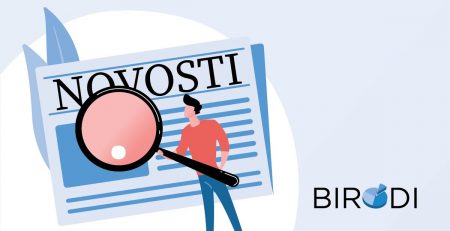Sanitary Measures for Improvement of Electoral Integrity in Serbia!
Following the Analysis of the Draft Conclusion that yielded the Second Election Improvement Dialogue, the Bureau for Social Research (BIRODI) proposes sanitary measures aimed at preservation and establishment of the rule of law and observance of law, namely, the integrity of institutions and professions (in)directly included in, and relevant for the integrity of the OSCE Missions to Serbia:
- President of the Republic of Serbia to step down from the position of a President of the Serbian Progressive Party or remain as the President of the Serbian Progressive Party and become one of the MP candidates or candidates for the future Prime Minister. This will enable the compliance with the following: Article 111 of the Constitution of the Republic of Serbia, Article 1 of the Law on the Election of the President of the Republic of Serbia, and paragraph 5.4. of the 1990 OSCE Copenhagen Document.
- All political parties (Serbian Progressive Party, Democratic Party, People’s Party, Party of Freedom and Justice, Social Democratic Party …), the Statutes of which include the provisions that entitle and oblige the party president to formulate criteria and nominate parliamentary candidates, to amend their Statutes or suchlike policies. This will prevent the dependent relationship with the party president ( who is also the Republic President or prospective Republic President or supporter in the presidential campaign), notably with the intention to prevent the breach of Article 40 of the Law on Prevention of Corruption.
- To amend Article 50 of the Law on Prevention of Corruption, deleting the paragraph which reads: “The provision of paragraph 4 of this Article shall not apply to public officials elected directly by citizens“. In this way, in and outside the election campaign period, the President of the Republic would not be allowed to use public resources and public events for promotional purposes.
- A mechanism of editorial self-evaluation of journalists and their news items related to topics or those in sections “Politics”, “Society and Economy”, “Culture”, “Sport” broadcasted in prime-time current affairs programmes and news to be established for public broadcasters (mandatory) and private broadcasters with national coverage (optionally). Model instrument for the editorial self-evaluation of journalists will be designed by Independent Journalists’ Association of Serbia (NUNS) and Journalists’ Association of Serbia (UNS) in cooperation with the representatives of journalists who are the members of the associations in the said media. Its application and effects of application will be monitored by a self-regulatory professional body composed of NUNS and UNS members, professors at the Departments of Journalism, and a representative of OSCE Mission to Serbia from the Media Department. The instrument of self-evaluation of journalists represents the operationalization of the Code of Journalists of Serbia, and will monitor compliance with the Code during the preparation of reporting content and broadcast of news items that should reflect the professional expertise and ethics monitored by the body formed according to the principle of professional co-regulation.
- Article 99 of the Law on the Election of Members of Parliament to be amended and an Article to be added to the Law on the Election of the President of the Republic of Serbia to read that the proposers are two members of the Supervisory Board where the National Assembly will elect one, solely from: the Serbian Academy of Sciences and Arts, Faculties dealing with subjects directly concerning political system and media, professional associations of journalists, and civil society organisations dealing with electoral process. Election of candidates for the Supervisory Board, that would be governed by a by-law, will be made at the level of proposers, through a public invitation, based on the criteria of civil, professional integrity, expertise, and dedication. Election at the level of proposers would be performed in the presence of the OSCE Mission to Serbia. The OSCE Mission would also be a member of the Supervisory Board, acting as a non-voting observer. The Law should stipulate that this body may request from a Service of the Regulatory Authority for Electronic Media to carry out the monitoring of broadcasters’ reporting for the purposes of the Supervisory Board, in accordance with the methodology defined by the Venice Commission, ODIHR, and the Directorate General of Human Rights of the Council of Europe. This would avoid the influence of the election participants on the election of the composition of the body that is supposed to monitor electoral process, and establish independent professional and civil control of the electoral process under the auspices of the Serbian National Assembly.
- Initiate the procedure to replace the REM Council having in mind that this authority has been in breach of the new Law on Electronic Media since it has been adopted, considering that the by-laws of the REM Council were not brought in line with the effective law, within the legally prescribed period. Concurrently, initiate legal and disciplinary procedures against the President of the Serbian National Assembly and members of the REM Council who failed to initiate the adoption of the by-law.
- The Ministry of Justice, in cooperation with the civil society organisations dealing with the protection of whistleblowers, with the assistance and intermediary of the OSCE Mission to Serbia, to check the eligibility of the public officers to receive the information from whistleblowers in terms of their expertise and integrity. This notably means to determine whether the officers are the members of political parties and to investigate whether during the election process, they have at their disposal the resources necessary for receiving information from the whistleblowers. Civil society organisations dealing with the protection of rights of whistleblowers, in cooperation with the OSCE Mission, will form the centre for the protection and support to whistleblowers in the election process. In this way, the protection of persons subject to pressure and/or persons pointing to irregularities during the pre-election procedure would be legally established.
- The Supervisory Body of the Serbian Assembly to prepare and adopt the Code of Public Opinion Research during the Election Process and the Supervisory Board of the Serbian Assembly to be in charge of its compliance. This Code will be in line with the World Association for Public Opinion Research.




